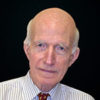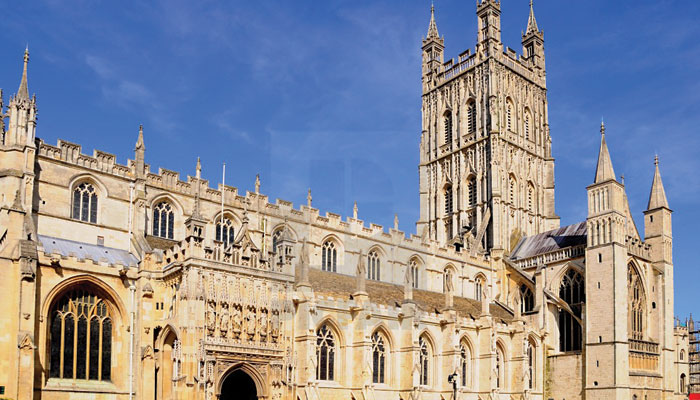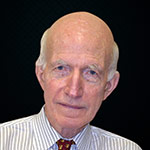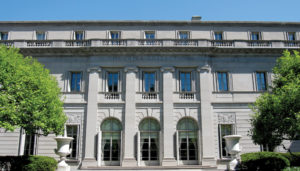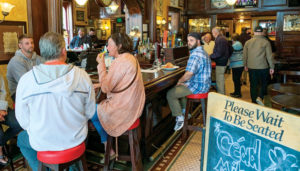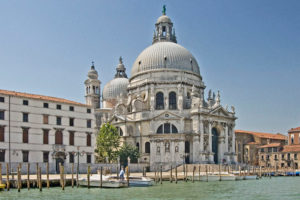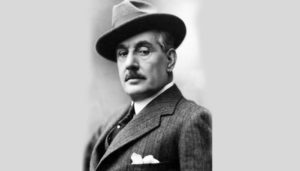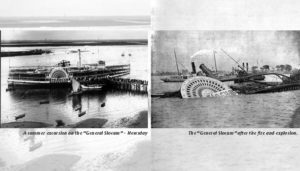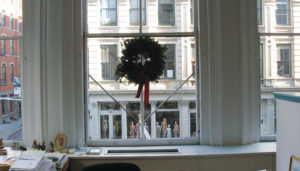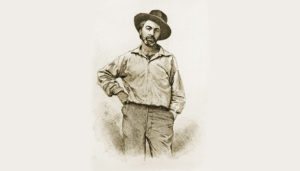While a student at Columbia Law School in 1960, a chance encounter on Fifth Avenue in New York City led me to a wonderful summer opportunity.
A friend of mine had a publisher from England in tow. Having spent six weeks the prior summer in England, Scotland and Wales with three college classmates, traveling by car from Dover in the southeast, overlooking the English Channel, to Dunvegan on the Isle of Skye in Scotland in the northwest, and from Edinburgh in the northeast to Land’s End in the southwest, overlooking the Atlantic Ocean – with America, far, far to the west being the next parish – visiting, it seemed to me, every great house, castle and cathedral along the way, I rhapsodized non-stop about my love for Britain to the publisher. Perhaps only to rid himself of me, so he could get on with his business affairs in New York City, the poor man asked, “Would you like a summer job in one of my book shops?” “Yes,” I blurted out, having no idea as to the name of his company, or his name, or where in England I might be sent. “Write to me,” he said, and hurried along the street to escape.
A few weeks later I received a letter from England. As I sometimes do, before opening an important letter – like an acceptance or declination from a university – I placed the envelope up to a lamp. Within the paper thin air mail envelope I detected a one-line response. Not a good sign. Probably a brush-off of the overly talkative American. But not at all! The response: “Report on Whitsun to Gloucester.” First, I had to ascertain from an ecclesiastical authority that Whitsun is the 7th Sunday after Easter, and second, from an atlas, the whereabouts of Gloucester. I came to learn that it was a cathedral town in the West of England. As directed, I duly reported.
I worked six days a week for a month at the book shop, located on Westgate Street in Gloucester. It is a branch store of the Society for the Propagation of Christian Knowledge (SPCK), the publishing arm of the Anglican Church. General books and religious books, along with communion wafers and wine, are sold. (Clerical collars as well, I believe.) My first instruction from Mr. Earle, the manager: “From the basement, bring up a case of ‘the finest’ for the rector.” I came to learn that we are the best bookshop in town and also have the finest communion wine.
Mr. Earle assigns me to the cash register. An odd assignment to give a foreigner unfamiliar with the complexities of the English coinage system, as it existed in 1960. Daily, I am baffled by half-pence, pence, shillings, florins, crowns, half-crowns and other mysterious coins. Each night the register was off, some nights with too little money, other nights with too much. In those informal times, no one seemed concerned, since things evened out in the end, more or less. No one accused me of stealing. In my view, the culprit was an overly complex coinage system. And I might add, British coins are far heavier than ours. I end up with holes in all my pant and jacket pockets.
I was the sole lodger at a bed-and-breakfast establishment located not far from the cathedral. It was run by a kind, elderly couple. In the morning they provided me with a grease-drenched breakfast in the English-style: fried eggs, bacon, bangers, buttered toast, all washed-down with buckets of tea. At lunch I spend a few shillings at a low-cost eatery called Lyons – usually partaking of a heavy-as-lead kidney pie. Supper with my hosts was modest. We then watched the Telly, followed by a snack of cake and tea, before I retired to an exceedingly lumpy bed for the night. I paid a small sum for my lodgings and received a slightly larger sum as my wage from the book shop.
At this stage in my life, I was very much an Anglophile. I read “The [ London ] Times,” always folding it tightly, as Londoners do, and charged expensive English umbrellas to mother’s store account at the fashionable “Lord & Taylor’s” department store in New York. I smoked Senior Service cigarettes, but in Gloucester could afford to buy only five cigarettes at a time, not a full pack. I purchased an ancient rusty bicycle from a tall Gloucester policeman, having sought out a bicycle suitable for my frame and finances.
On Sundays, I went on trips, my favorite being to Chepstow in Wales by train, accompanied by my bike, and then returning to Gloucester by bicycle through the Wye Valley, stopping to pay homage to William Wordsworth at Tintern Abbey. I had read his famous poem many times at college where I majored in English literature. I then bicycled through the Forest of Dean. (I felt surrounded by Deans, my bed-and-breakfast lodging being close-by to Dean’s Way, and now, here I was in the Forest of Dean.) Miles from Gloucester, I would see the magnificent cathedral tower looming above the low-lying countryside.
My colleagues at the bookshop were Mr. Earle and Mr. Lima, both elderly by my standards, since at the time I was a mere 23, and Gwen, the dashing beauty of Gloucester, too socially preoccupied and self-confident to waste her time on me, even though I was a sophisticated New Yorker, or so I thought, and Harvard College graduate. My one pal at the shop was Elizabeth, a shy girl of sixteen. She and I laughed a lot together. I used to chase her around the shop with the feather duster before opening time. (So much for my sophistication.) My pranks got both of us in trouble. She would tease me when I appeared at the shop wearing ties of different clans. “On Monday, you arrive as a Campbell, on Tuesday, as a Stewart. You can’t be both.” I attributed her taunts to English provincialism. (Thirty-nine years later, when I returned to Gloucester to visit the shop, now at a different location, only Elizabeth remained – still shy – where she served as assistant manager. At dinner together that night, we laughed over shared experiences.)
While in Gloucester I had been offered the opportunity to work in the Society’s London shop, but I chose to remain in Gloucester. Being in a provincial town was a far more unusual experience for me. And how I had come to love the cathedral – my favorite in England. The cathedral became a part of my daily life. At the Evensong Service, choir and worshippers came together in the chorister pews, surrounded by candles and enveloped by organ music, the voices of the choristers and the glory of the cathedral fabric. We read this family prayer from “The Book of
Common Prayer”:
Lord, support us all the day long,
until the shadows lengthen and
the evening comes, and the busy
world is hushed, and the fever of life
is over, and our work is done. Then in
thy mercy grant us a safe lodging,
and a holy rest, and peace at the last.
The early evening has always been my favorite time of day.
A proud moment came for me on my return trip by train from Gloucester to London. I shared a second class carriage with an elderly woman. As the train pulled into London’s Paddington Station, she leaned over to ask, “Excuse me, sir, are you in the Guards?”
I smiled warmly, but without responding, exiting from the railway carriage, lest my accent betray me. As an Anglophile, I had reached the pinnacle!



